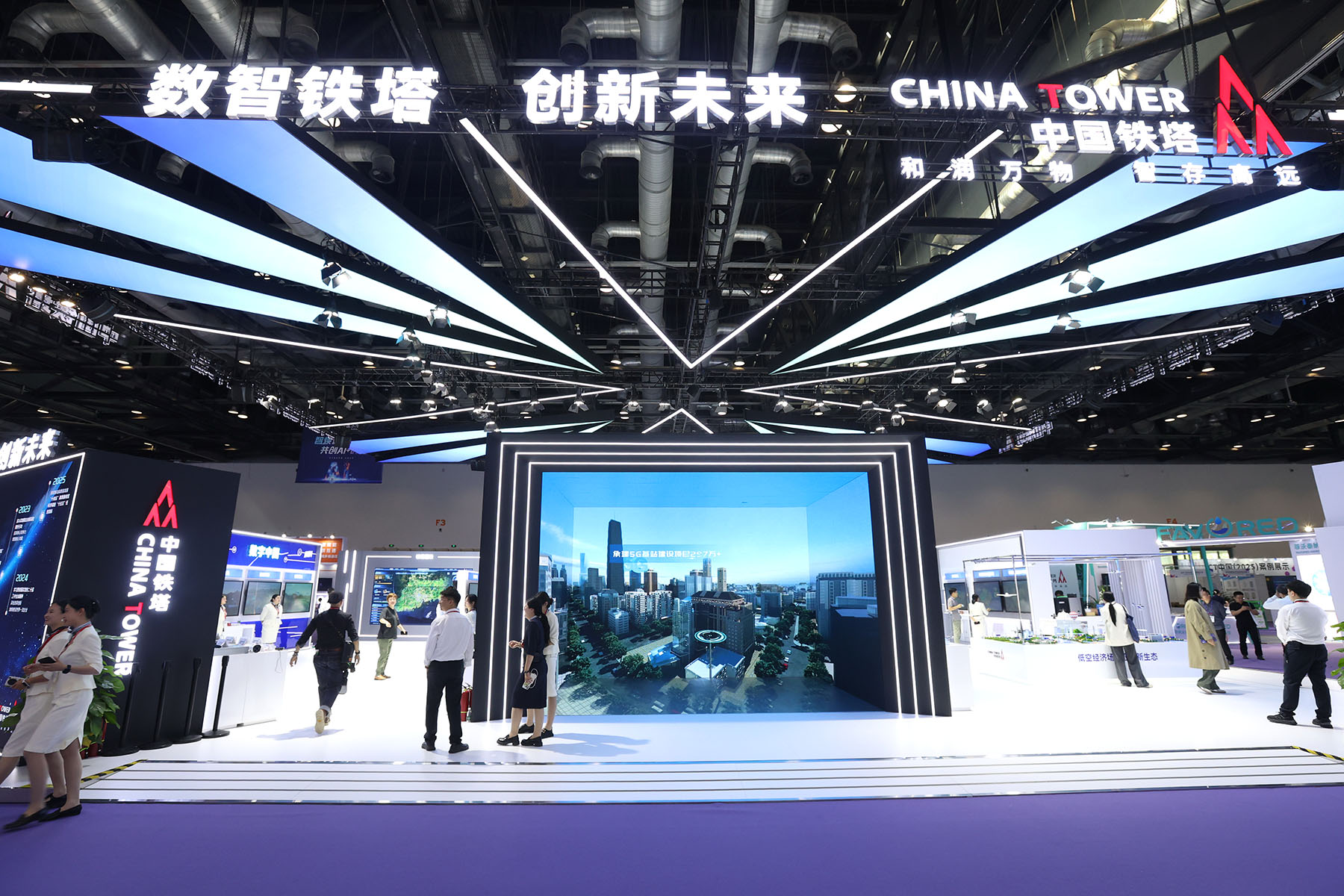
One of China's major telecom infrastructure companies is pressing ahead with a new wave of digital infrastructure upgrades, as the country accelerates efforts to strengthen the foundations for its next stage of high-quality growth, said company and industry heads.
China Tower Corp, a Beijing-based mobile communication infrastructure company that runs most of the country's telecom towers, recently announced that it had upgraded 250,000 telecom towers nationwide into "digital towers "supported by a vast network of 2.1 million tower sites across the country.
Powered by 5G, artificial intelligence and big-data models, these digital towers now contribute to monitoring tasks ranging from enforcing fishing bans and protecting arable land to emergency response, earthquake early warning, forest fire prevention, road network surveillance and pollution-control campaigns, said Zhang Zhiyong, chairman of the company.
READ MORE: China's new focus boosting global supply chains
"During the towers' digital and intelligent transformation, we have strengthened AI-driven innovation by launching an industry large language model for spatial governance and developing more than 700 AI algorithms."
The towers have now been widely adopted in more than a dozen key industries including agriculture, environmental protection, land management, water resources and transportation, Zhang added.
Looking ahead to the 15th Five-Year Plan period (2026-30), China Tower will continue strengthening its capacity to translate technological breakthroughs into application-ready solutions and drive deeper integration between scientific innovation and industrial development, Zhang said.
The move aligns with the central authorities' proposals for the 15th Five-Year Plan, which call for appropriately advanced deployment of new infrastructure and the accelerated construction and efficient use of information and communications networks. The proposals also emphasize upgrading traditional infrastructure through digital and intelligent transformation.
According to Cai Wei, chief strategy officer of KPMG China Advisory, these priorities reflect the country's intensified efforts to adapt to a shifting growth model and evolving economic fundamentals as it enters a new development stage.
ALSO READ: Digital sector to benefit BRI real economies
"With urbanization and traditional infrastructure investment slowing down, future growth will increasingly depend on new forms of infrastructure that underpin new quality productive forces, especially information and telecommunication networks, integrated computing power systems and major science and technology facilities," Cai said.
Cai added that during the 15th Five-Year Plan period, the focus of economic development will shift toward deeply integrating scientific and industrial innovation and fostering closer synergy between the real and digital economies.
"This requires new infrastructure not only to support technological breakthroughs but also to empower digital transformation across all sectors, effectively linking the 'technology-industry-economy' chain," he said.
Contact the writers at lijiaying@chinadaily.com.cn


